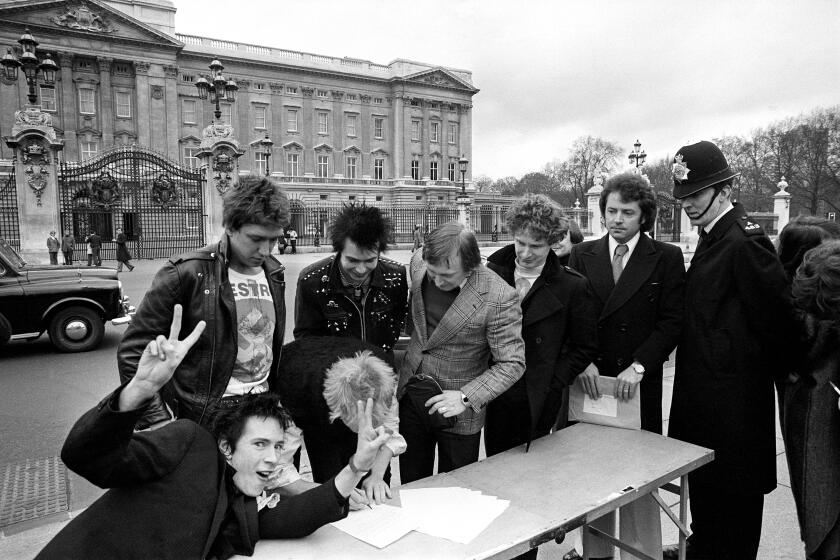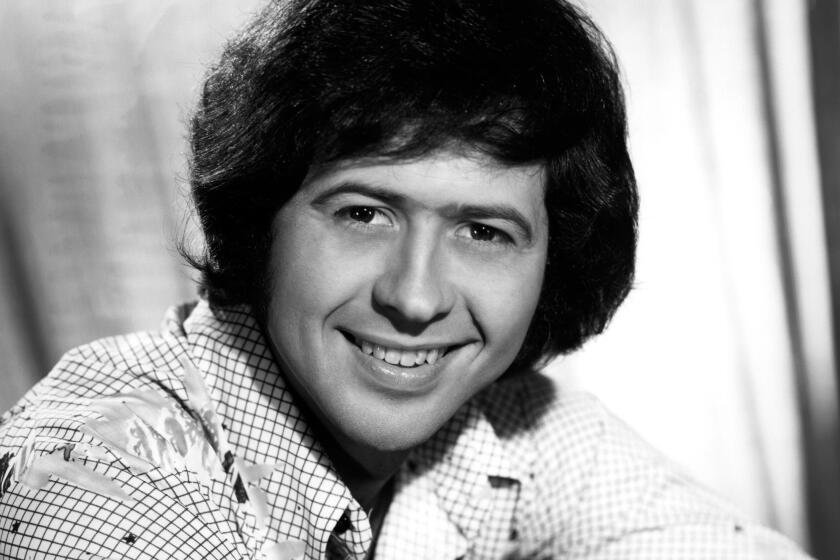At superstar stadium spectacle, Lady Gaga crashes through the surface
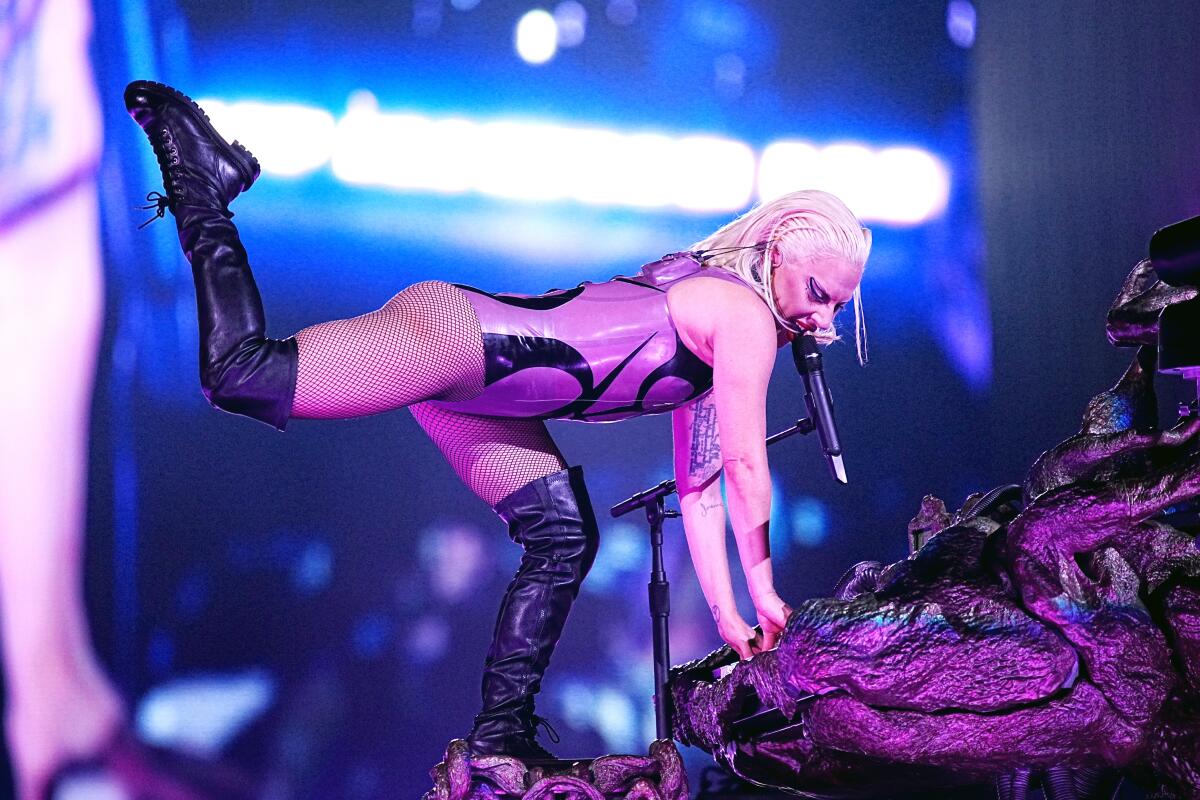
Did she know he’d be there? Or was his presence a genuine surprise?
Either way, Lady Gaga catching sight of her producer BloodPop in the crowd Saturday night at Dodger Stadium appeared to throw her off the script she’s been working from on her latest tour, the Chromatica Ball, which due to multiple pandemic-related delays finally launched in July, more than two years after the release of the album it was meant to accompany.
Though it’s full of glittery, up-tempo dance music, “Chromatica” unsparingly documents Gaga’s struggles with depression and addiction and the type of pop stardom that can seem like a dream until it starts to feel like a nightmare. Indeed, it was as the singer was introducing “Fun Tonight” — about not having fun with a partner who enjoys your celebrity more than you do — that she glimpsed BloodPop, a.k.a. Michael Tucker, with whom she wrote the song, near the smaller of the concert’s two stages.
Calling him a “wonderful human being,” Gaga said the producer had come to her house every day while she was going through a “really rough time” — a time when she was “so angry I never thought I wouldn’t be angry.” She said she’d sit on her porch and chain-smoke three packs of cigarettes; she told the tens of thousands of fans in the stadium, “You don’t know what it’s like,” which briefly threatened to set off the yikes alarm.
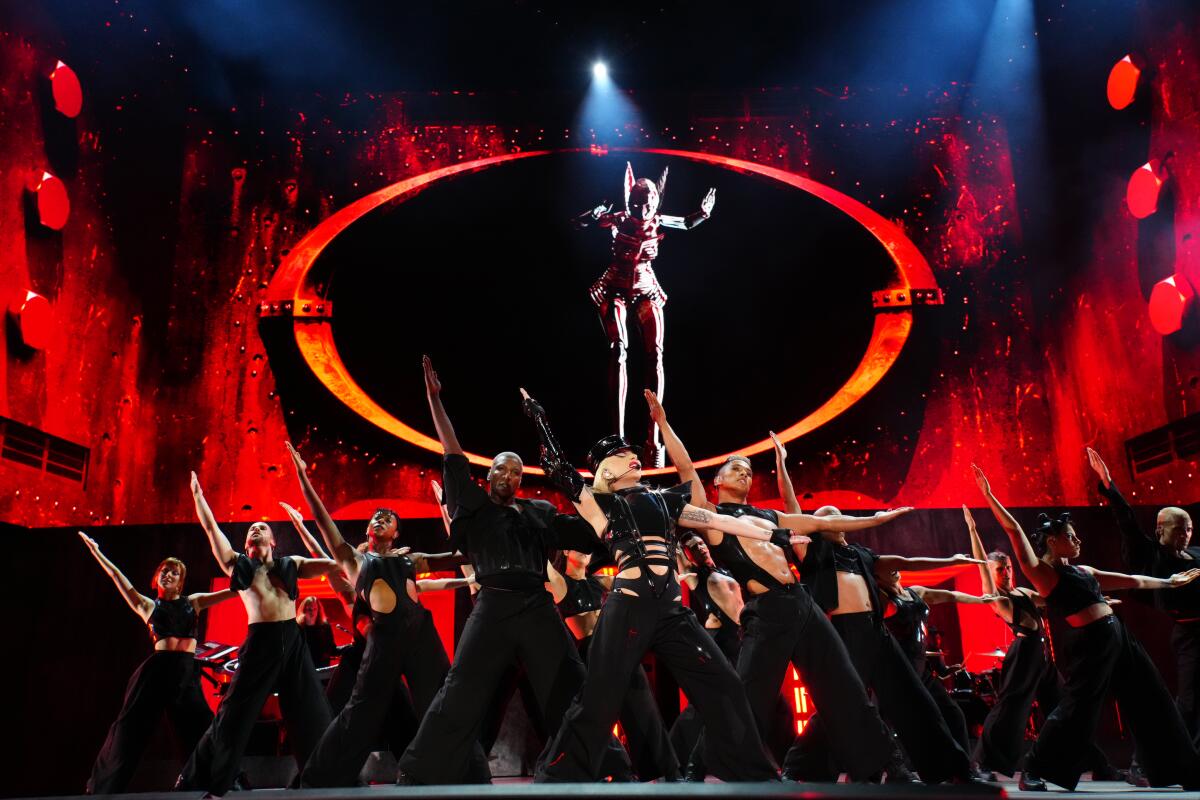
Then she remembered good old BloodPop — “He didn’t judge me” — gently cajoling her into her home studio to write songs. “I think my favorite thing about you, Blood, is that you’re not just good at music,” she said. “You really cared about me. And you really wanted me to be OK.”
Go to enough big pop shows and the promise becomes something like this chance to see a crack in the armor of a superstar’s self-mythologizing. And Lady Gaga, to be sure, is no less interested than her peers in armor: The singer began Saturday’s two-hour performance, which played out on a set inspired by hard-edged Brutalist architecture, encased in a kind of couture sarcophagus as she belted three of her smash-hit oldies: “Bad Romance” into “Just Dance” into “Poker Face.” She went on to cycle through a series of additional high-concept costumes, each not-so-quick change accompanied by a ponderous video about … the quest for liberation in a world bent on dehumanization?
The Sex Pistols sneered she wasn’t human. But for many artists, the queen was more cipher than enemy
From the Beatles to the Smiths to Skepta, British musicians portrayed Queen Elizabeth II as everything from bored and lonely to a raging fascist.
More than most, though, Gaga is committed to exposing — to showcasing — the cracks. Her shout-out to BloodPop came in a long, freewheeling sequence she delivered alone, minus her band and dancers, on that secondary stage from behind a piano that looked like it had grown out of a tree. She sang “Shallow,” her monster power ballad from “A Star Is Born,” and “The Edge of Glory,” her gulping vocals and silky yet propulsive piano playing evoking Elton John at Dodger Stadium in 1975 — an age when spectacle felt somehow handmade even at its most elaborate. Less happily, she also did “Angel Down,” a maudlin torch song that represented the evening’s sole selection from her coolly received 2016 LP. “It’s from ‘Joanne,’” she said rather pitifully halfway through it, as though to jog memories best left unjogged.
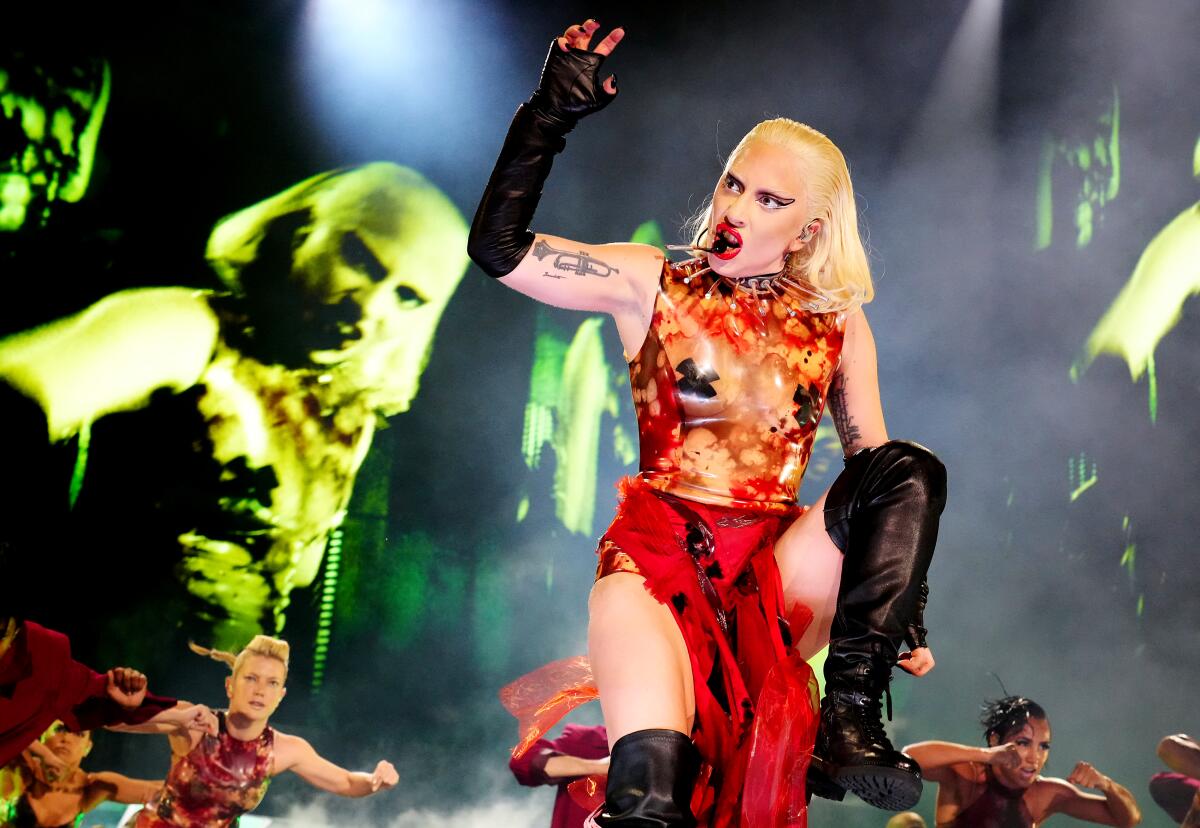
Yet even the flashy production numbers Gaga led on the enormous main stage — the thumping “Stupid Love,” for instance, or “Replay,” which rode a furious disco groove — had a thrillingly ugly quality: You’d watch her face on the screens flanking the stage and catch her making some vicious expression at odds with conventional ideas of pop-diva presentation. Or you’d hear the grit in her voice as she lunged for a pained high note, a live singer through and through, as in “Babylon,” about gossip’s toll on the real person behind a manufactured image. That Gaga was evidently filming Saturday’s gig for some future project — “52,000 people. Sold out. 30 cameras pointed at you,” she tweeted afterward — made you respect all the more its sweaty, sinewy immediacy.
The show climaxed with a euphoric run through “Rain on Me,” whose message of resilience made it a touchstone of the early-COVID era — and which played here among the tightly packed hordes like a hard-won victory song. But even after a volley of celebratory fireworks, Gaga wasn’t finished: She stuck around to sing “Hold My Hand,” her shameless bit of 1980s cosplay from “Top Gun: Maverick.”
The choice, as an act of programming, was insane. Yet as a symbol of her belief in herself? Totally endearing.
